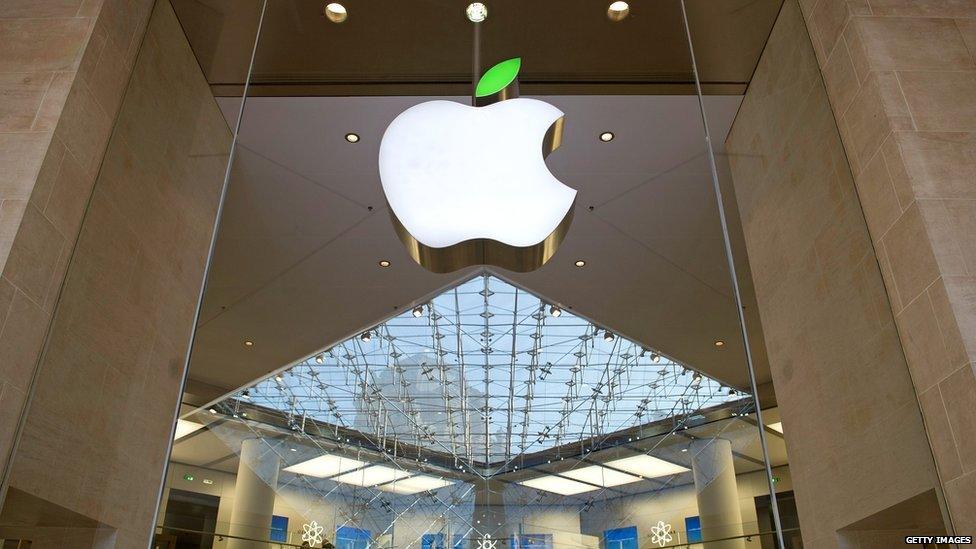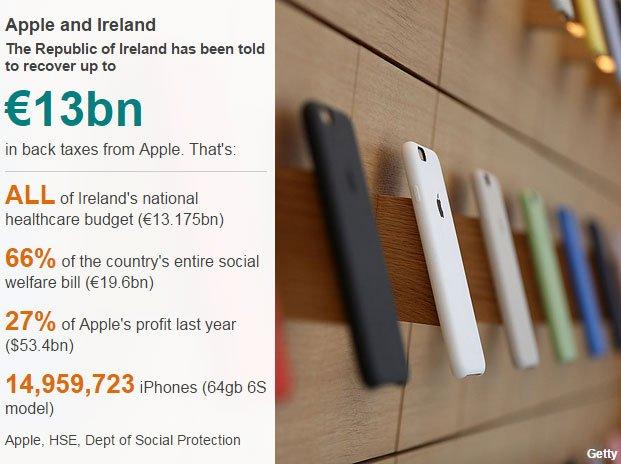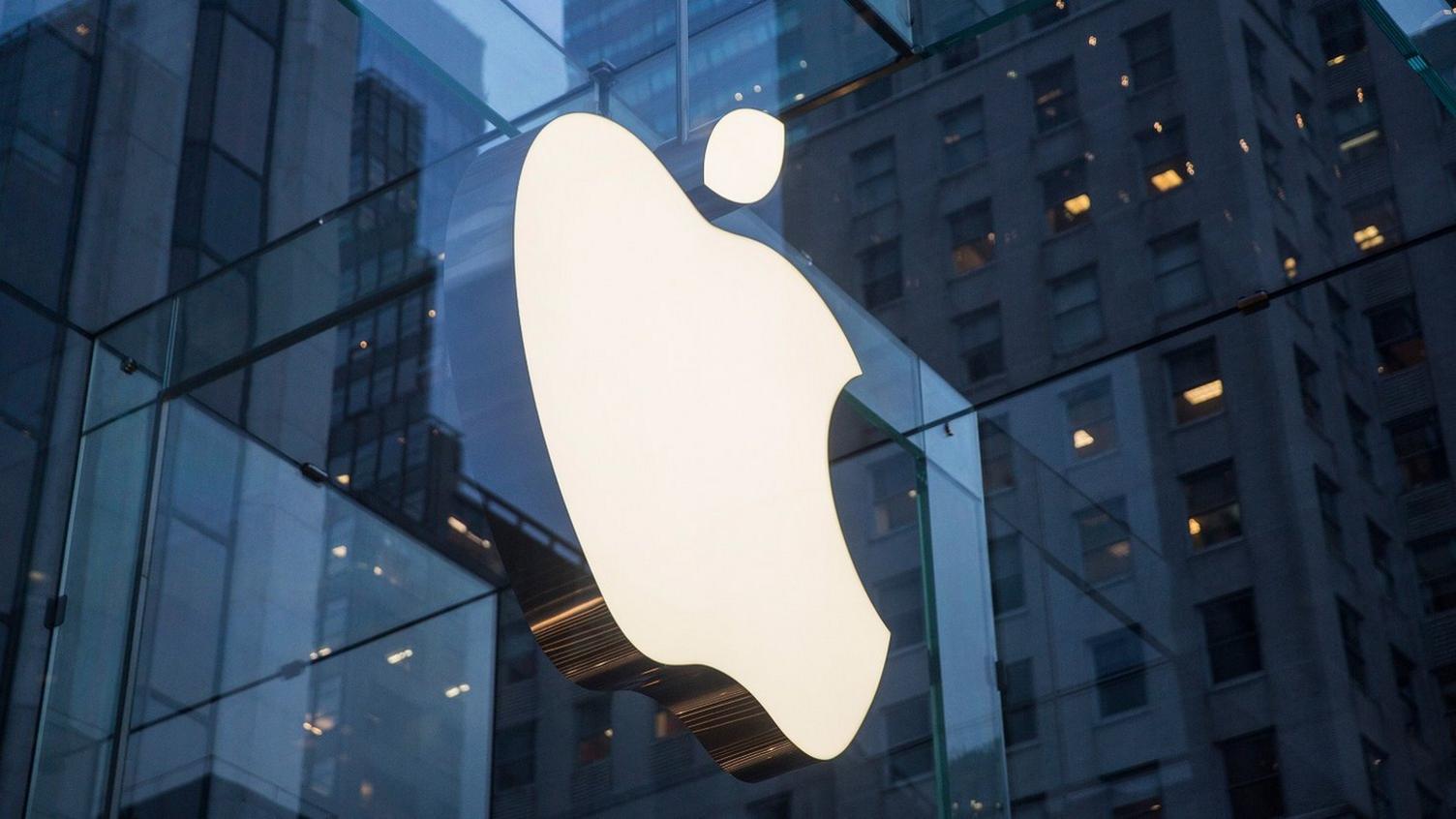Apple tax ruling 'a serious blow' to Irish investment
- Published

After a three-year long investigation, the European Commission has concluded that the US firm's tax benefits are illegal
"We are not a tax haven" has been a mantra of official Ireland for decades.
So the European Commission ruling - that the country should recover up to €13bn (£11bn) from Apple in back taxes - is a serious blow.
It is damaging in two ways: It hits the Republic's international reputation and it could make it less attractive as a destination for foreign direct investment (FDI).
Tax has been a key part of Ireland's success in attracting investment, particularly from US technology firms.

The 12.5% corporation tax rate is among the lowest in the developed world.
Irish Finance Minister Michael Noonan makes no apologies for that rate, saying: "We do not hide it, in fact, we broadcast this rate as the defining element of our corporate taxation system.
"The Irish tax regime is fully transparent as our rules are clearly laid down in statute."
But aside from that headline rate Ireland has, on occasion, appeared very accommodating to the tax-planning needs of multinationals.
'Double Irish'
Most notoriously there was the "double Irish" structure which allowed multinationals to legally shift profits from Ireland to countries that are considered tax havens.
It worked by allowing one Irish-registered subsidiary to make payments, for using intellectual property, to another subsidiary which is tax resident in a country like Bermuda or the Cayman Islands.
Mr Noonan closed that scheme to new entrants in 2015 and it will be phased out by 2020.
So expect Irish ministers to emphasise the efforts they have made to close down loopholes.
At the same time, they will have to reassure companies that they will not be the next to face a huge tax bill based on historical arrangements.
There are also some tricky domestic politics in Dublin.
The minority centre-right government will appeal the ruling, in effect saying it does not want the money.
This comes on top of growing anger at the behaviour of so-called vulture funds in Ireland.
These funds bought billions of euros of property in the wake of the financial crash and have used perfectly legal loopholes to pay very little Irish tax.
- Published30 August 2016
